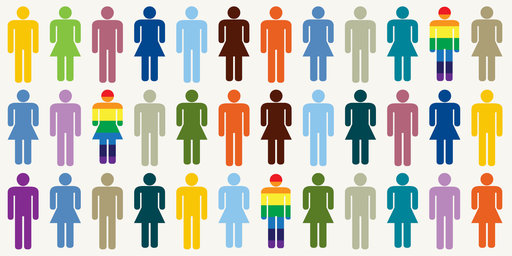Diversity Problem and the Romance Industry
Last month I ran across this headline: The Billion-Dollar Romance Fiction Industry Has a Diversity Problem.
I was surprised by the headline until I read the accompanying article.
The article, written by NPR’s Emily Sullivan, was not actually about romance fiction as a whole. It was about a particular organization, namely Romance Writers of America (RWA), and the RITAs, the RWA’s top honors for romance writers, which were awarded in early April.
Sullivan reports that the RWA acknowledged that “in its 36-year history, no black author has ever won the prize. According to the RWA’s own research, black authors have written less than half of 1 percent of the total number of books considered as prize finalists.”
I’ve waited until now to write about the article because I had to think about it. Here are my thoughts:
One. I was initially surprised by the headline because there is great diversity in romance fiction story lines. Romance writers have long been gay friendly, because we know that love is unpredictable. We’re also body friendly in the sense that women and men of all shapes and sizes find love in our stories. Not only have African-American romances been around for many decades, so have interethnic romances, and let’s not forget shapeshifter stories with werewolves, werebears and the like, which take on interspecies conflicts and resolutions.
Two. The lack of diversity in the RITA Awards is nevertheless symptomatic of social structures that systematically eclipse recognition of the contributions of minorities. The RWA is a late-comer to a conversation that Hollywood, for instance, has been having for some years.
Three. For a number of years I belonged to the RWA and attended the yearly conference. I dropped out many years ago for a reason not dissimilar to the longstanding problem with it articulated by Alisha Rai, a romance writer of South Asian origin. She is quoted in Sullivan’s article as saying:
“I’ve heard horror stories from other authors [of color] about, you know, sitting at a table at the RWA national conference and people who are there will get up and walk away from them. In a lot of ways, it’s like going to a water cooler and being turned away from that water cooler. And when you’re in this industry, it’s a very solitary life. We write, and we keep to ourselves in a lot of ways; we’re a little bit like hermits. And this is our way to see our colleagues, is to go to these meetings and conferences. When you feel like you’re not a part of it, it’s very demoralizing.”
For the record, Alisha decided to go ahead and join RWA this year for the first time.
As a white woman, I can’t claim to have been discriminated against based on color, but for me it was like sorority rush, and I never found my sorority. Or perhaps I wasn’t accepted into the one I wanted, if I had wanted one.
My point is, it’s not as if the RWA doesn’t work only for women of color.
Four. I have been in academics long enough to have been around for Gay Studies that flourished in the ’90s and that were inspired, at least in part, by civil demonstrations such as the Stonewall riots of 1969. I cannot draw a straight line from any one thing that ultimately led to the Supreme Court ruling in 2015 guaranteeing to same-sex couples the fundamental right to marry under the 14th Amendment. However, I can see a complex relationship among civil action, academic debate, shifts in public understanding and then political change.
So it must also be for the diversity problem in the RWA. There was the Civil Rights movement in the 1960s followed by slow and on-going changes in every institutional structure in the country along with massive discussions over the years in academics. Thus, I have been aware of the problem of diversity for a very long time.
I can’t say I dropped out of the RWA because I perceived its lack of diversity, but I can say its overall vibe or politics or whatever didn’t resonate with me.
With this new awareness of the diversity problem in the RWA perhaps there will be a place for me in it in the future.
Final note: Alisha Rai was one of the panelists at my Gender, Sexuality, Feminism and the Romance Novel Symposium held at Duke University in February 2017.
Categorised in: Love, Romance in the Media, Thoughts
This post was written by Julie Tetel Andresen
You may also like these stories:
- google+
- comment



